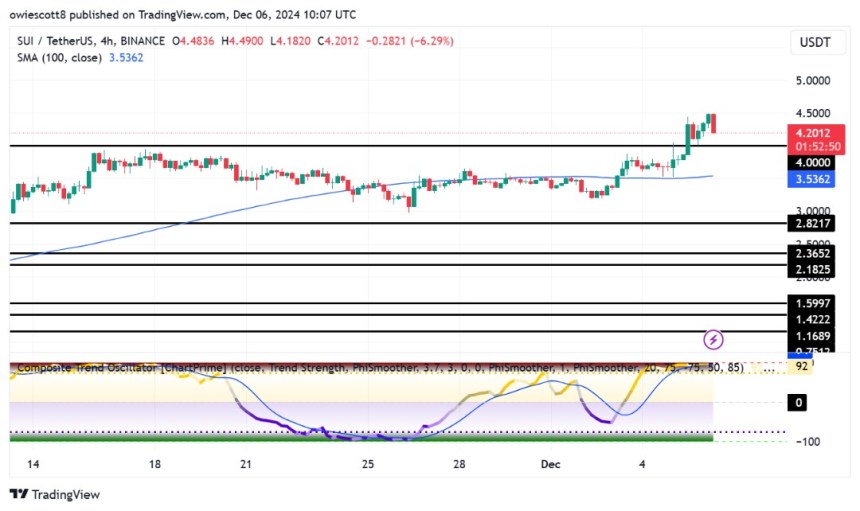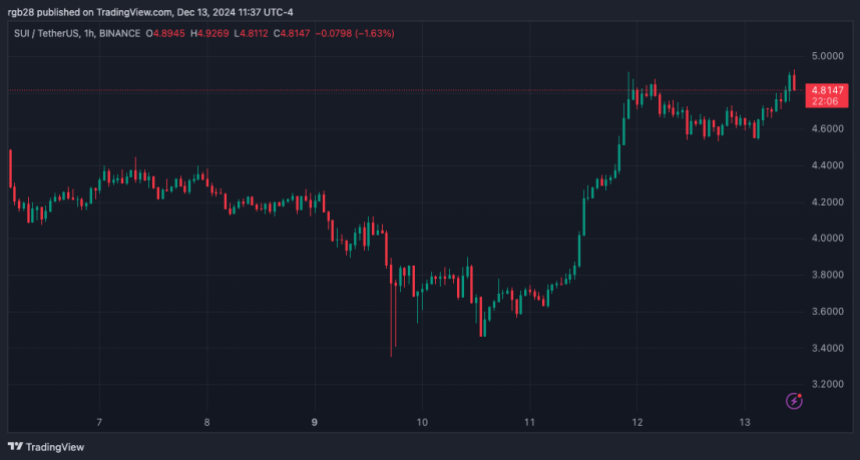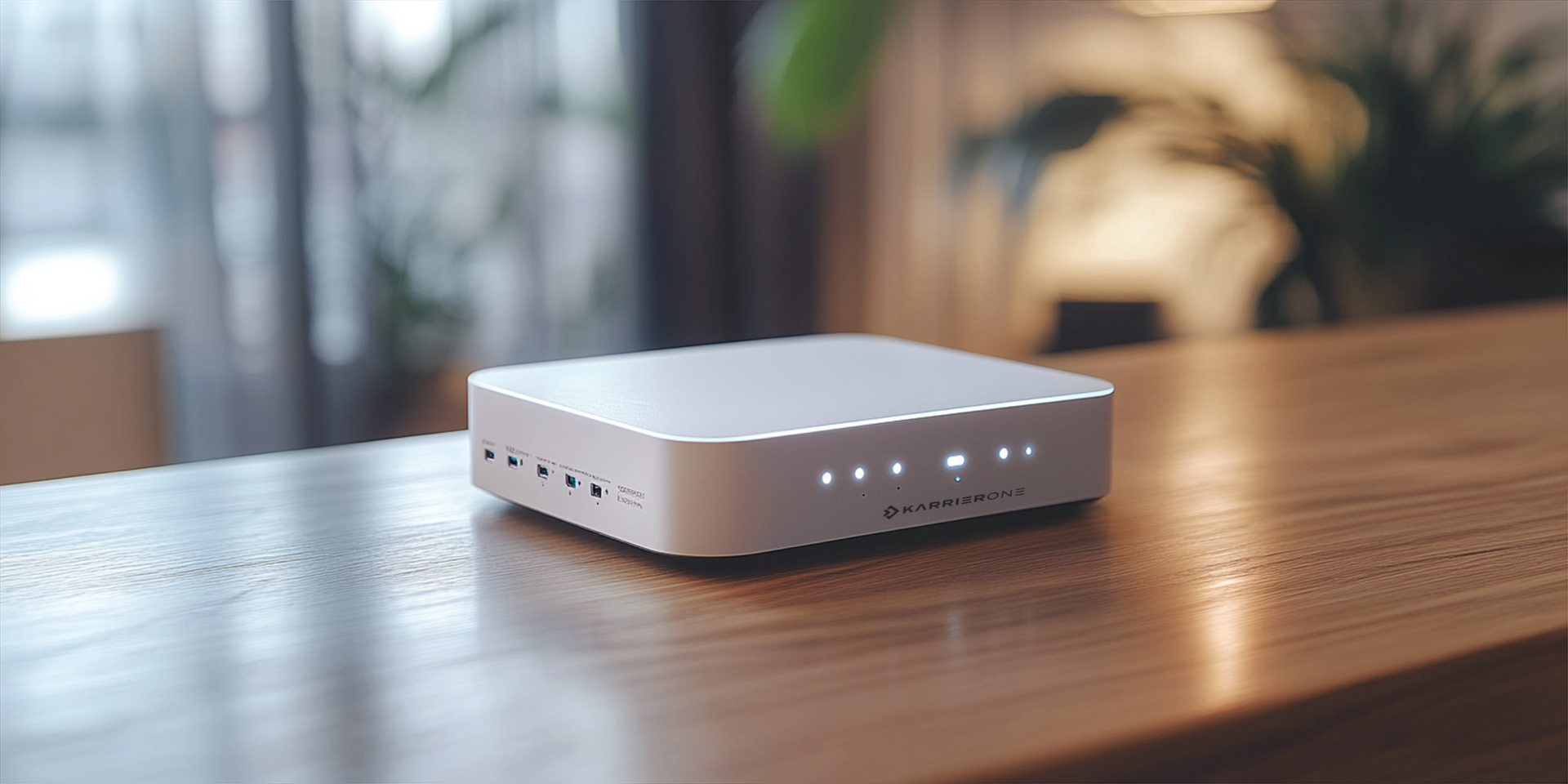SUI has been on an impressive upward trajectory, but signs of potential exhaustion are beginning to emerge. Key technical indicators now suggest the cryptocurrency has entered overbought territory, sparking speculation about whether a pullback could be on the horizon. While the recent rally reflects strong bullish momentum, the market may be approaching a critical juncture. Can SUI maintain its upward streak, or is a price correction inevitable?
As of writing, SUI has surged over 10%, reaching a price of $4.23 in the past 24 hours. This movement has boosted its market capitalization to over $12 billion, with trading volume exceeding $5.5 billion, indicating strong investor interest and market activity.
SUI’s price on the 4-hour chart is beginning to exhibit bearish signals, with a noticeable decline toward the $4 support level and the 100-day Simple Moving Average (SMA). This downward movement is underscored by the formation of a bearish candlestick, suggesting growing selling pressure in the market. A sustained drop below these levels could signal a broader trend reversal, making this a pivotal moment for its price action.
 Additionally, the 4-hour Composite Trend Oscillator for SUI is flashing an overbought condition, highlighting the asset’s recent robust upside pressure. Typically, an overbought reading suggests that the price has risen rapidly within a short period, potentially leading to market exhaustion as buyers begin to lose strength.
Additionally, the 4-hour Composite Trend Oscillator for SUI is flashing an overbought condition, highlighting the asset’s recent robust upside pressure. Typically, an overbought reading suggests that the price has risen rapidly within a short period, potentially leading to market exhaustion as buyers begin to lose strength.
This condition often serves as a cautionary signal for traders, indicating the possibility of a price correction or a consolidation phase as the market seeks to regain equilibrium. If the overbought pressure persists, SUI could face challenges maintaining its current levels.
If SUI experiences a pullback, monitoring critical support levels that could provide stability is essential. Presently, the $4 mark stands out as a key level, reinforced by its alignment with the 100-day SMA. A dip below this support might trigger further declines, with support zones near $3.75 and $3.50 acting as potential cushions. These levels are crucial in determining whether the pullback will be temporary or evolve into a more extended bearish phase.
However, If the bulls manage to trigger a comeback at the $4 support level, it could mark the beginning of a renewed rally for SUI toward $4.50 and beyond, implying that buyers are regaining control.

As of writing, SUI has surged over 10%, reaching a price of $4.23 in the past 24 hours. This movement has boosted its market capitalization to over $12 billion, with trading volume exceeding $5.5 billion, indicating strong investor interest and market activity.
Technical Analysis: Indicators Hint At Overbought Conditions
SUI’s price on the 4-hour chart is beginning to exhibit bearish signals, with a noticeable decline toward the $4 support level and the 100-day Simple Moving Average (SMA). This downward movement is underscored by the formation of a bearish candlestick, suggesting growing selling pressure in the market. A sustained drop below these levels could signal a broader trend reversal, making this a pivotal moment for its price action.

This condition often serves as a cautionary signal for traders, indicating the possibility of a price correction or a consolidation phase as the market seeks to regain equilibrium. If the overbought pressure persists, SUI could face challenges maintaining its current levels.
Key Support Levels To Watch If A Pullback Occurs
If SUI experiences a pullback, monitoring critical support levels that could provide stability is essential. Presently, the $4 mark stands out as a key level, reinforced by its alignment with the 100-day SMA. A dip below this support might trigger further declines, with support zones near $3.75 and $3.50 acting as potential cushions. These levels are crucial in determining whether the pullback will be temporary or evolve into a more extended bearish phase.
However, If the bulls manage to trigger a comeback at the $4 support level, it could mark the beginning of a renewed rally for SUI toward $4.50 and beyond, implying that buyers are regaining control.







